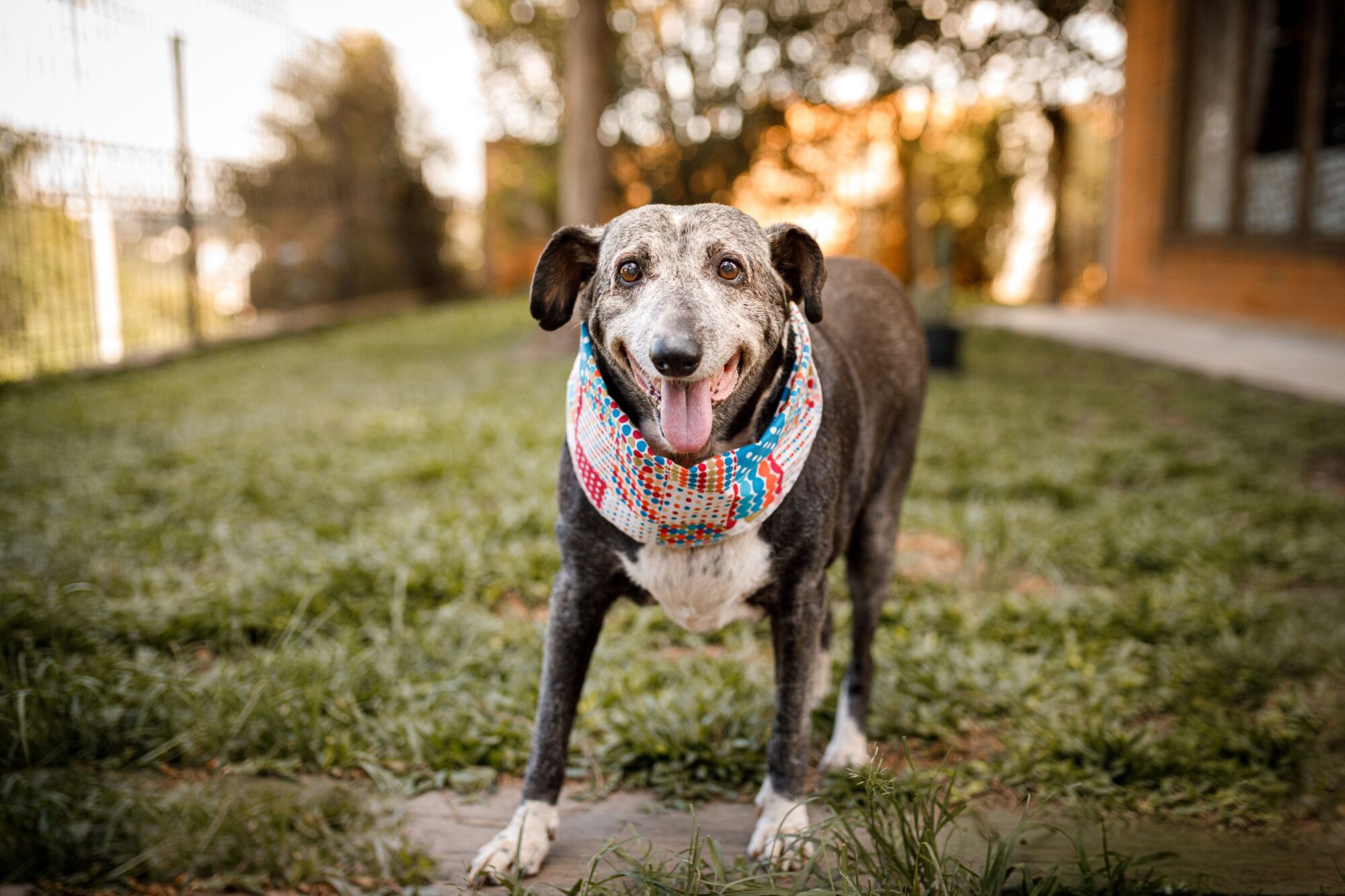Helping Your Senior Pet Maintain a Healthy Weight: Diet and Exercise Tips

Just as it is with humans, it’s often easier to keep pounds off of a pet than try to help them lose weight. In other words, prevention is the key to maintaining a healthy weight. As pets age, this becomes even more crucial. Any added weight can put pressure on inflamed, swollen joints, and cause pain, reduce activity levels, and decrease quality of life. We can help your senior pet maintain a healthy weight through proper, balanced nutrition and daily exercise.
A Look at Arthritis
Arthritis can affect any animal, but some breeds may be genetically predisposed to the disease. While symptoms can range between tolerable to excruciating, arthritic pets actually benefit from moving around. Without daily movement, symptoms can worsen.
Nutritional supplements can alleviate some of the pain, swelling, and sensitivity related to arthritis. Please let us know if you are interested in having your pet try omega-3 fatty acids, glucosamine, or certain antioxidants.
What’s more, without daily movement, senior pets can pack on pounds before you know it. We work closely with pet owners to figure out exact portion sizes and meal frequency, and suggest adjustments in the absence of exercise.
Age-Appropriate Nutrition
There are food products available that support every life stage. Since puppies and kittens are growing and developing rapidly, and burning off any extra calories, they need a specially formulated diet to support their body’s changing needs. Similarly, food designed for senior pets prioritizes certain vitamins and nutrients that support the process of aging. There are even certain diets that can ease symptoms of age-related illnesses.
Why Wellness Matters
Our senior pet health exams are designed to promote overall health, and always include weighing them. When used as a marker for overall health, any potential weight changes can indicate certain problems. We compare current weight values to previous scale readings and use this information to establish a treatment plan.
Some senior pets have trouble maintaining a healthy weight and are skinnier than they used to be. Weight loss can be attributed to many serious health conditions, including cancer, heart disease, kidney disease, diabetes, dental disease, and dehydration.
Seeing your pet every 6 months can clue us into any developing health conditions before they spread or worsen.
Stamina and Strength
As pets age, they will slow down and tire quicker. Modifying their daily exercise opportunities to fit with their abilities is key to senior pet health. This could mean shorter walks in the morning and evening, or less aggressive or vigorous play. Limiting or restricting their daily opportunities for exercise doesn’t only affect their physical health, but their mental health is impacted, too.
There are many items that can boost an aging pet’s confidence in walking, including a support harness, rear support, or a support sling. We can help you and your senior pet find the right aids that keep you active together.
Senior Pet Health
Thanks in part to excellent ownership and modern veterinary medicine, our pets are living longer than ever before. Even though pets technically become seniors around age 7, they can live well into their second decade.
If you have questions or concerns about maintaining a healthy weight for your senior pet, please reach out to us at (916) 737-5670. Our team can’t wait to see your senior pet soon!
